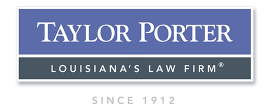ENVIRONMENTAL NEWS ALERT - Louisiana Legislative Session to Consider LDEQ Fee Increase
March 30, 2016

In keeping with Taylor Porter’s commitment to its environmental clients to actively monitor the latest state and federal regulatory developments, our firm is pleased to share a monthly Environmental Regulatory Alert. For any further information or to contact Taylor Porter environmental attorneys, visit our Environmental and Regulatory Litigation practice area page.
Louisiana’s 2016 Legislative Session will consider LDEQ Fee Increase proposed by House Bill 900
House Bill 900 (Representative Chris Leopold)
Representative Leopold’s House Bill 900 proposes to increase numerous fees collected by LDEQ. Prefiled on March 4, 2016 and written to amend La. R.S. 30:2011 and 2104, the bill has been referred to the House Committee on Natural Resources and Environment for consideration during the ongoing Regular Session. If passed, the increases would likely become effective Fiscal Year 2018 after regulatory revisions have been made by LDEQ. The bill seeks to authorize increases in fees paid in the following areas:
- accreditation by commercial laboratories;
- certain reviews of immovable property, i.e., requests for no further action letters;
- requests for declaratory rulings;
- air (up to 10%);
- water (up to 10%);
- hazardous waste (up to 25%);
- solid waste (up to 25%);
- water quality (up to 10%);
- radiation protection fees (up to 10%);
- underground storage tank fees (up to 10%);
- Motor Fuel Underground Storage Tank Trust Fund; and
- Lead Hazard Reduction Fund and for certain lead training/accreditation services.
In addition, under the bill, in even numbered years, LDEQ can adjust fees that are assessed and collected by the department after June 1, 2018, by an amount not to exceed the annual percentage change in the Consumer Price Index for All Urban Consumers (CPI-U) (All Items - U.S. City Average), rounded downward to the nearest dime. LDEQ would be required to submit a report detailing the uses of the fees and efforts to increase efficiency in permitting, inspections, enforcement and collection of fines, within 90 days of adoption of rules implementing the CPI-U adjustment based fee increase, to the Joint Legislative Committee on the Budget for approval.
LDEQ Undersecretary Karyn Andrews has stated that the department’s current operational spending has been exceeding its revenue sources and the fee increases are necessary to secure future operations at the department.
As of March 30th, the proposed bill has not been set on committee agenda. To check on the current status of House Bill 900 go to:
http://www.legis.la.gov/legis/BillInfo.aspx?s=16RS&b=HB900&sbi=y
______________________________________________
LDEQ announces proposal to submit a Redesignation Request and Ozone Maintenance Plan for the Baton Rouge Nonattainment Area
The LDEQ Office of Environmental Services, Air Permits Division will submit a proposed redesignation request and ozone maintenance plan for the 2008 8-hour ozone national ambient air quality standard (NAAQS) for the Baton Rouge nonattainment area (BRNA), which includes the parishes of Ascension, East Baton Rouge, Iberville, Livingston and West Baton Rouge. Based on air quality monitoring data collected by LDEQ during the 2011 – 2013 monitoring period the area’s “design value” (DV) was 75 ppb, which is equal to the attainment threshold. Further, quality assured data shows the 2014 DV for the BRNA has decreased to 72 ppb. LDEQ has submitted and EPA has approved the department’s Clean Data Determination of this data and redesignation is the next step to achieving attainment status.
What does an attainment designation mean to local permit holders?
The goal in nonattainment areas is to improve the air quality and move towards attainment, whereas the objective in attainment areas is to maintain its attainment status. As a result, the permitting requirements in nonattainment areas are generally more stringent than those in attainment areas.
For example, construction permits for new major sources and major modifications are divided into Nonattainment New Source Review (NNSR) requirements for nonattainment areas and Prevention of Significant Deterioration (PSD) requirements for attainment areas. In general, NNSR thresholds are lower than those of PSD, causing a greater spectrum of sources to require permits and be subjected to the more stringent emissions controls of NNSR. PSD requires best available control technology (BACT), which is the maximum degree of emissions reduction available for each pollutant subject to regulation, taking into account energy, environmental, and economic impacts and costs. NNSR requires lowest achievable emissions rate (LAER), which is the most stringent limit in any state implementation plan or achieved in practice by similar sources. In addition, major sources obtaining Title V operating permits are also affected by air quality designations. Emission levels for Title V applicability are impacted by a nonattainment designation with lower thresholds for ozone based on the severity of the nonattainment classification.
To review LDEQ’s proposed “Revised Draft BRNA 2008 8-hour Ozone NAAQS Redesignation Request and Maintenance Plan” go to:
http://www.deq.louisiana.gov/portal/Default.aspx?tabid=2381
All interested parties are invited to submit written comments concerning the redesignation request and maintenance plan for the BRNA no later than 4:30 p.m., April 29, 2016. A public hearing will be held upon request. The deadline for requesting a public hearing is April 4, 2016.
POTPOURRI NOTICE 1603Pot1: Baton Rouge Nonattainment Area Redesignation Request and 2008 8 Hour Ozone National Ambient Air Quality Standard Maintenance Plan
Read our Case Studies
See how we can help. Contact us today
- Disclaimer
- © Taylor, Porter, Brooks & Phillips L.L.P. All rights reserved.



